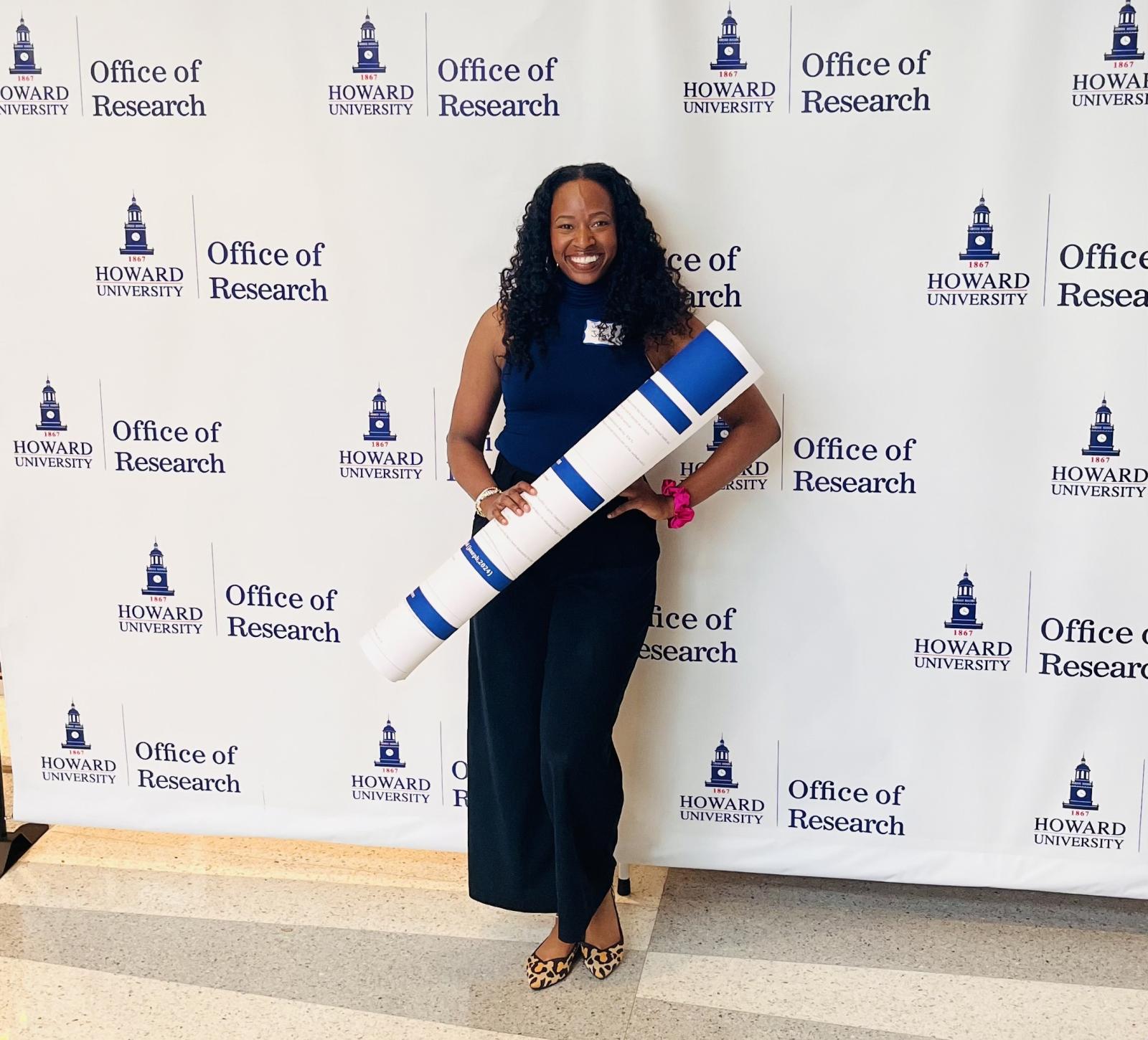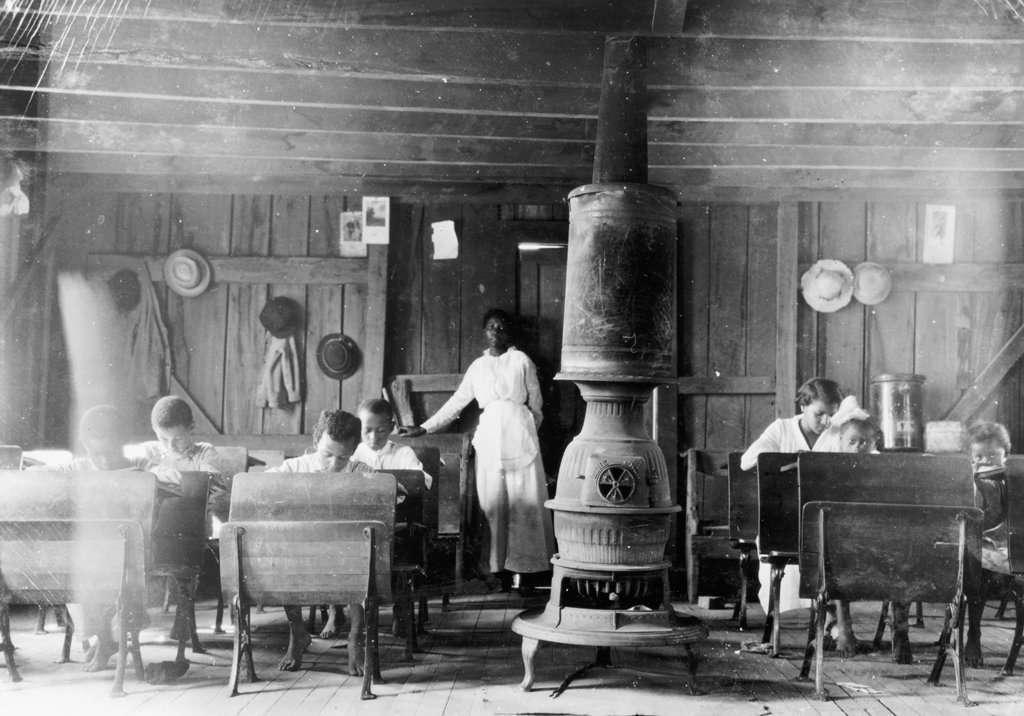If all teachers are under duress in the American education system, then the issues preceding the current teacher crisis take a complex form for those vulnerable to the country’s discriminatory history.
Connecting the dots may seem far-fetched, but Jamela Joseph, a second-year PhD student in the Howard University School of Education’s doctoral degree in education program, draws direct lines from colonial slave laws to how Black women teachers are treated today, a concept she defined as “American K-12 Parasitic Syndrome (APS).”
During Howard's Research Month in April, Joseph shared her findings that determine the harmful systems in place that impact Black teacher’s experiences. “In terms of indoctrination and monitoring and conditioning, I saw a lot of alignment that occurring in the colonial era and how those same adaptations are similarly aligned and packaged,” she said.

Identifying Joseph’s American K-12 Parasitic Syndrome
Joseph angles her research into four comparable aspects: denial of personhood, bodily autonomy, labor exploitation, and violence and punishment. In her research, Joseph creates a comparative analysis of policies and practices that create her definition of “American K-12 Parasitic Syndrome (APS).”
“The American K-12 education system takes on the form and function of a parasite reinforced by the American education system’s policies and practices that benefit from the exploitation and unpaid labor of teachers, resulting in the mental and emotional harm, drained energy, passion, and motivation of educations within the American system.”
Labor exploitation is prominent to the connection between colonial slave laws and today’s education system issues as labor of enslaved Africans and teacher’s labor with little to no pay sustains these systems, she explained.
One of the contributing aspects to APS is that the American education system is being funneled through a capitalistic lens which prevents students and faculty from obtaining education in a communal sense with wellbeing of themselves and others in mind.
“The education system doesn't foster a sense of creativity community it's very individualistic, rote and structured, it still has that factory model,” Joseph said. “[School administration] want you to think in terms of the structure of the system that we live within, which speaks to the lack of advocacy and censorship that teachers experience.”
Racism's Ever-Present Effects on Black Teachers
They remained silent as a way to protect themselves, their children when they were facing physical, mental abuse, or harm.”
Joseph says APS was also created with other preexisting societal factors in mind, such as racism, that affect Black people are disproportionate rates. In 2023, The Washington Post released a research article that determined racism creates “chronic stress levels” for people of color.
“They remained silent as a way to protect themselves, their children when they were facing physical, mental abuse, or harm.”
Epigenetics, the biological study of how environments and behaviors affect how genes express themselves, is also a facet of Joseph’s research. Black teachers are likely descendants of the slaves and those who were exposed to the atrocities of slave ownership and the following eras of Black codes and racial terror post-Civil War. “I realized how strong epigenetics is present within Black teachers in the classroom today, in terms of how we cultivate safe spaces and advocate for ourselves, or the lack thereof, "she said, citing her study of Post Traumatic Slave Disorder as a foundation to her work.
“They remained silent as a way to protect themselves, their children when they were facing physical, mental abuse, or harm.”
Reception of APS
So far, the education world has been receptive of Joesph’s work and model. The Westchester, New York native has presented her research on a plethora of panels such as Howard’s Center for Applied Data Sciences and Analytics’ (CADSA) inaugural research symposium, The Black Doctoral Network Western Regional Conference at Loyola Marymount University, and the Critical Questions in Education Conference’s gathering in New Orleans this year.
Joseph hopes that Black teachers’ struggle with the American education system will gain more credibility and visibility through her research. She envisions a “structural, systemic acknowledgement” for “holistic healing.”
“I really want for there to be a level systemic acknowledgement and support as it relates to Black teachers,” Joseph said. “We already have seen, through previous research and literature, what Black teachers have been subjected to. Terminology like American K-12 Parasitic Syndrome speaks to exactly what's happening at a structural policy and institutional level.”
Article ID: 2111




